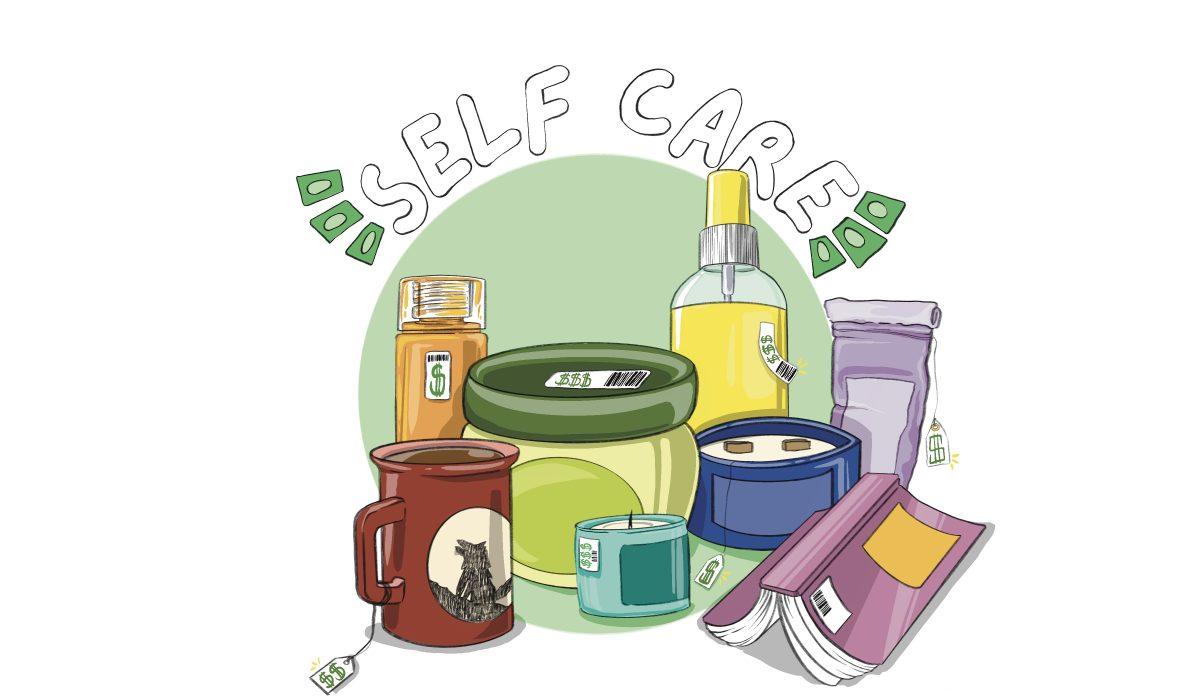Self-care evokes very specific imagery: candles, face masks, massages or essential oils. The message of supporting your mental health has become synonymous with objects and price tags. To take care of yourself, first you must buy things.
Taking care of yourself is a much more common topic than it was 10 years ago. Naturally, as the topic grew in popularity, capitalism somehow wormed its way into it. The genuineness of self-care is overwhelmed by companies and influencers showcasing “self-care products,” making these products the key to taking care of yourself.
Under the bathroom counter, in all the discarded skin and hair care products, is where the real message of self-care gets lost. It isn’t about object accumulation or serotonin hits from credit card swipes, it is about identifying what truly helps you.
Having a multitude of products and bath items is fun. I too am obsessed with slathering myself in expensive lotions and shampoo, but self-care is so much more than a physical product.
The high of buying things is short. You cannot sustain that tiny moment of happiness; instead, you should seek out joy. Find things that make you feel fulfilled and joyful.
When we turn self-care into an act of consumerism, we make it easier to ignore things that are more important. Not only will you go broke trying to find happiness in objects, you will get home and light the candle just to wonder why you don’t feel any better.
There is no universal way to take care of yourself. It would be easy if taking a shower would fix everything, but mental health isn’t that simple.
For me, I love to work and get ahead. One of my rules for myself is I cannot do any work after dinner or on Saturdays. Some people may think that is impossible, but it motivates me to stay focused and get my work done when I am supposed to so that I can take real breaks.
These breaks mean getting to enjoy a hobby with the relief of knowing I have completed my work. Self-care for me is organization, studying ahead of time and staying focused.
Using one product cannot fully target supporting your mental health. Sure, it may feel amazing to slip into a fuzzy robe, but we cannot ignore the importance of learning what makes you feel best and how you can accomplish it.
Buying things as a form of self-care turns it into a box to check. Got a coffee today? Done with taking care of myself until tommorow. Spoiling yourself feels good at the moment, but it doesn’t address mental health.
Spoiling yourself may even lead to increased mental health problems. If the only way you find joy is in purchasing items, you may find yourself in a stressful financial situation.
There is nothing wrong with buying things, but the problem is the lie that taking care of yourself is as simple as swiping a card.
The problem is thinking products have the magical power to support your mental health.
Seek out things that truly make you feel good. Think of what you like to do to destress. Purposeful time to take walks or enjoy a hobby can fulfill that need. Brainstorm what made you feel good and remember it for when you don’t feel as good.
Reflect on what self-care means to you. Maybe even light a candle.














